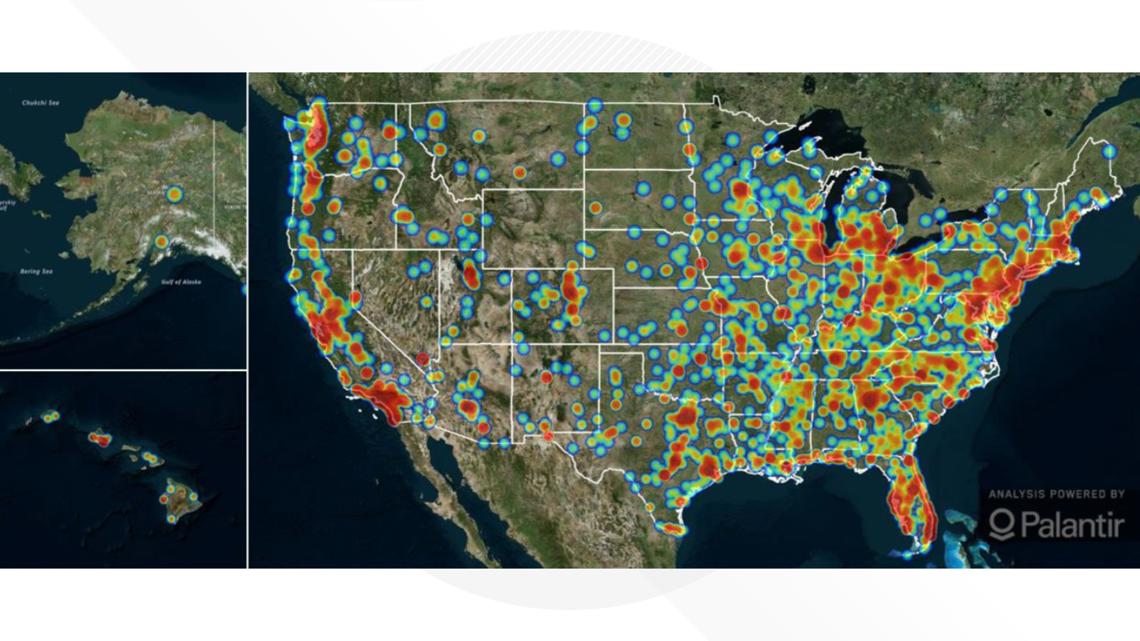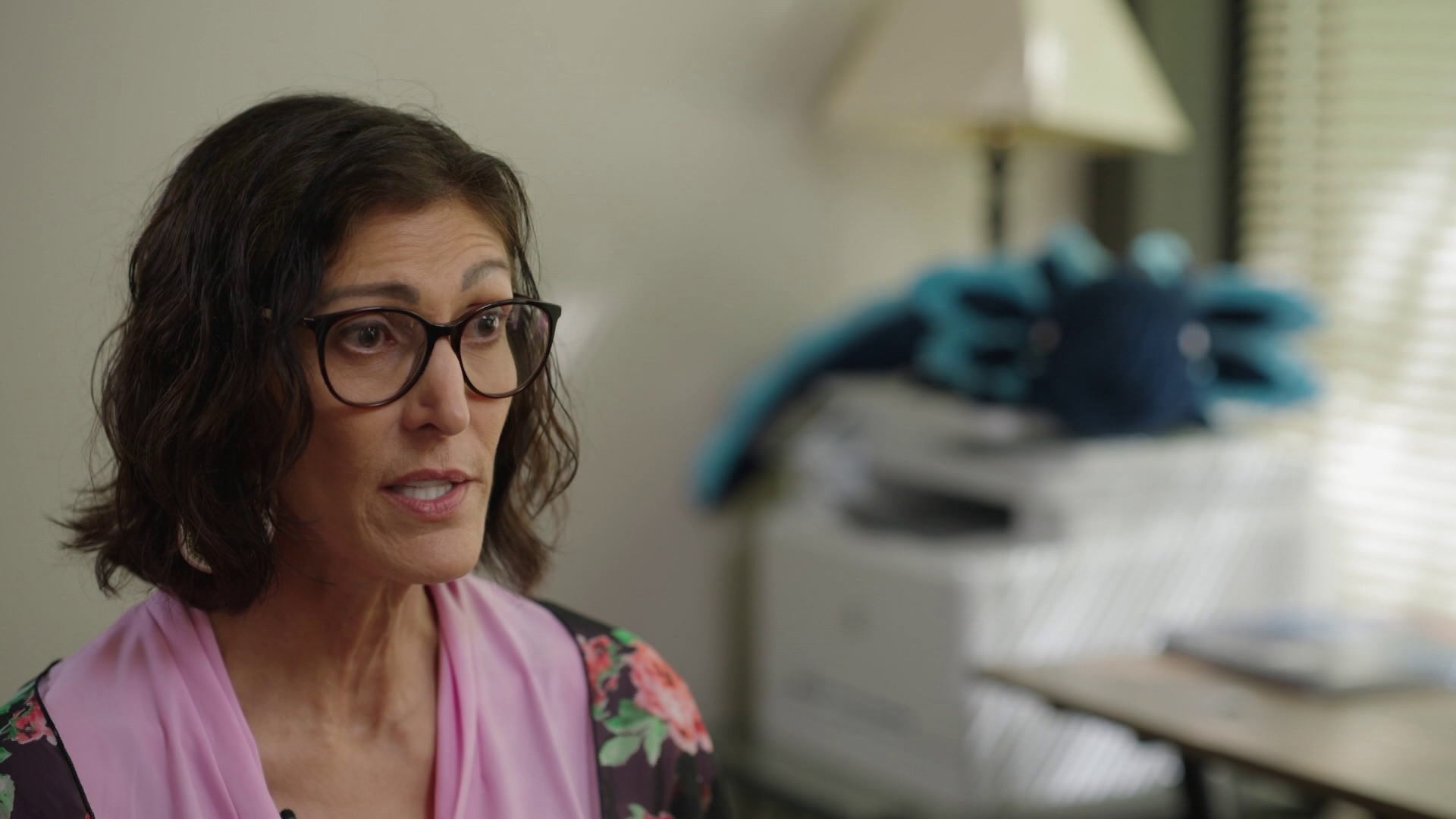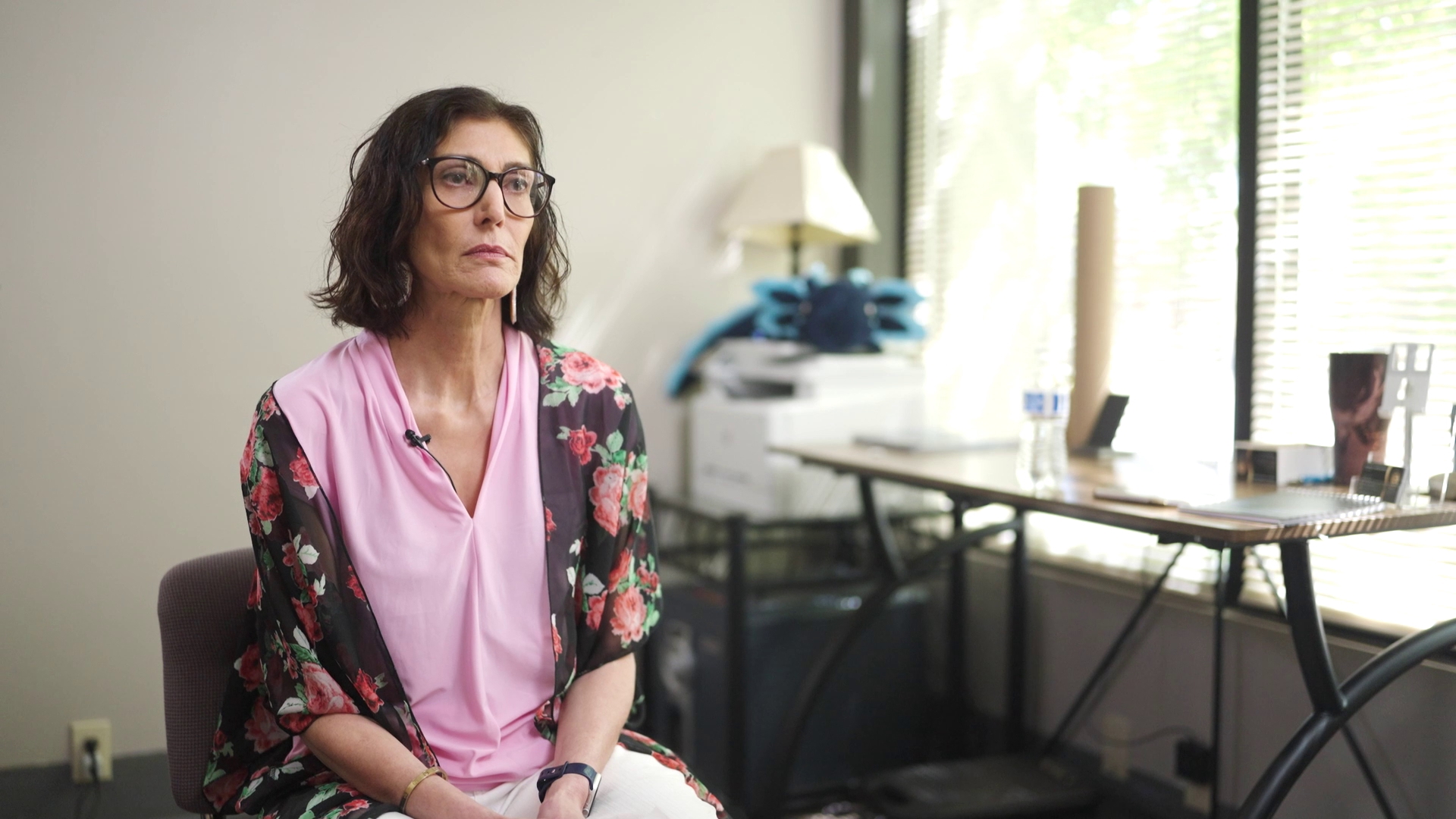SEATTLE — Something that may be perceived as an international problem is happening right here in western Washington. KING 5 has found our region is one of the hotbeds in the U.S. for human trafficking.
Officials with the FBI and Homeland Security Investigations said it's a big problem that takes many forms.
"It is in the shadows a lot of times," said Robert Hammer, the Special Agent in Charge with Homeland Security Investigations.
These agencies are working with local organizations, like the Innovations Human Trafficking Collaborative in Olympia, to support victims of trafficking. The executive director of the organization, Jeri Moomaw, is all too familiar with the challenges survivors of trafficking face after escaping a trafficking situation herself over two decades ago.
"Unfortunately, I was, I was trafficked at a young age and really struggled through life up until my early 30s," Moomaw said.
According to the U.S. Department of Justice, human trafficking "is a crime involving the exploitation of a person for labor, services, or commercial sex."
Western Washington is a hotbed for this type of crime due to several factors, including ports located in Seattle, Tacoma and Olympia. There's also access to victims via roadways.
"We are on the I-5 corridor, and you know, that runs all the way from Canada, pretty much down into Mexico," Moomaw says.
A map from the National Human Trafficking Hotline shows locations of human trafficking situations that span down Interstate 5 along the West Coast.


Over time, the problem has worsened. According to data from the National Human Trafficking Hotline, Washington state had 194 identified victims of human trafficking in 2015. Data shows the number of identified victims dipped during the pandemic, but the most recent data from 2021 still landed at 337, up 70% in the 6-year timeframe.
In 2021, 192 of those cases were sex trafficking, while 19 cases were labor trafficking. Ten other cases consisted of both.
Federal officials say victims in these cases don't always feel like there's a way out.
"They may see that they don't have other options, and that's all environments that the traffickers have created," said Richard Collodi, the Special Agent in Charge with the FBI.
Moomaw said that traffickers can use promises of opportunity, money, and even love to lure in victims. While Moomaw was able to escape her trafficking situation, she said the reality is that it can happen to anyone.
"I call human trafficking an equal opportunity destroyer," she said. "It doesn't matter what your socioeconomic level is. It doesn't matter your race, your ethnicity, age."
So, how do we solve the problem?
"People need to be educated," Moomaw said. "They need to understand that this is something that could happen to them or their loved ones."
She advises people to report the situation to the National Human Trafficking Hotline if something feels wrong.
For those who feel they or someone they know may be in a trafficking situation, Moomaw shares a message of hope.
"There is a future for you. Every single person that walks through our door, every single person that works here, is a living, walking miracle."
The National Human Trafficking Hotline has a list of ways people can protect themselves and stay safe. The list reads, in part:
- Keep important identification and documents close at all times
- Have means of communication accessible at all times, as well as a phone charger
- Save unwanted or threatening messages, texts, voicemails, etc.
If you or someone you know has been forced to labor or engage in sex work, you can call the National Human Trafficking hotline at 1-888-373-7888 or text "BeFree" to 233733. Find more resources on the Washington State Department of Commerce website.
Watch the full interview with Moomaw below:


